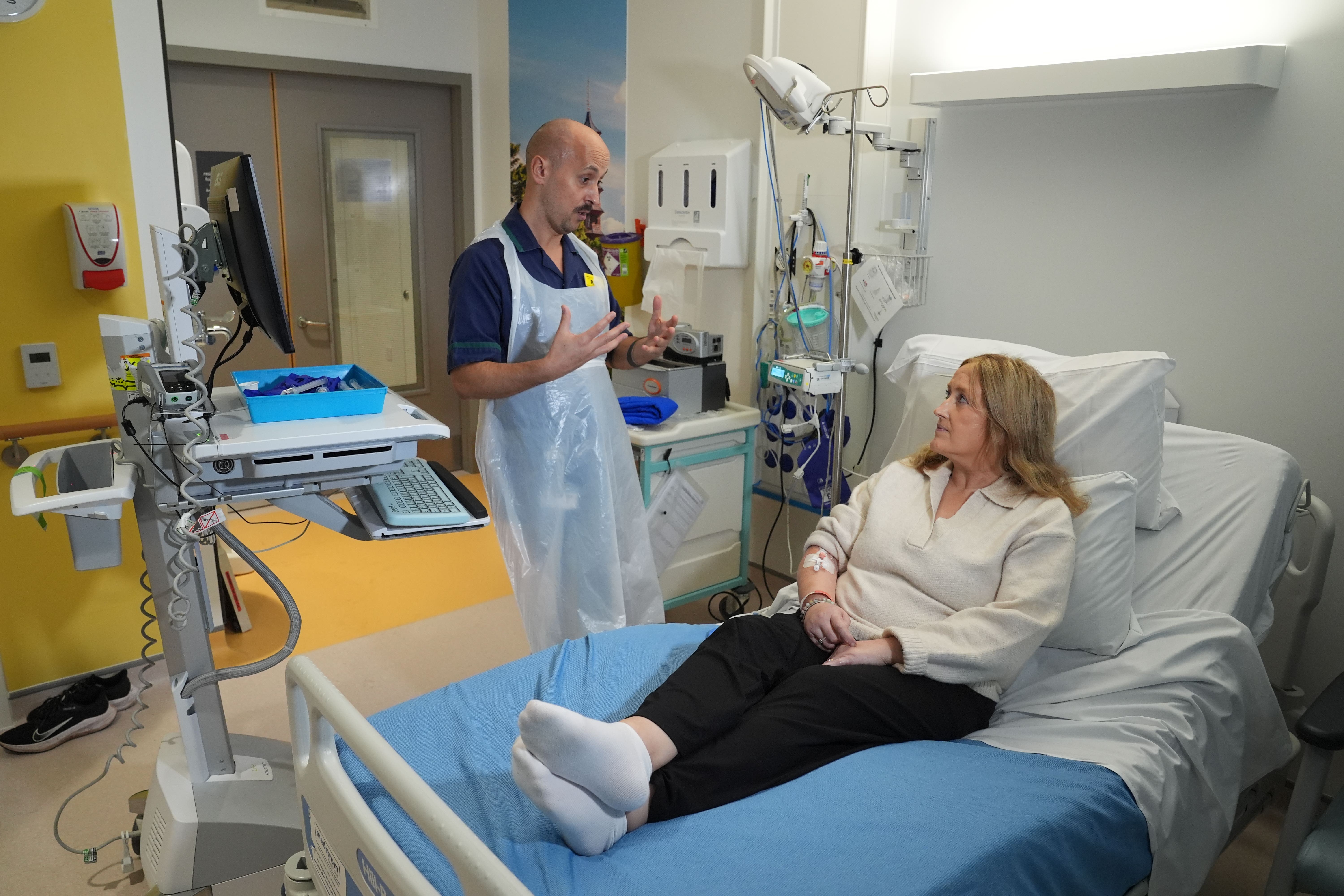Former fitness instructor ‘beyond excited’ to receive lupus therapy in UK first
Katie Tinkler is one of three patients who has received CAR T-cell therapy with the hope of remission and the chance to ditch lifelong drugs.

Your support helps us to tell the story
From reproductive rights to climate change to Big Tech, The Independent is on the ground when the story is developing. Whether it's investigating the financials of Elon Musk's pro-Trump PAC or producing our latest documentary, 'The A Word', which shines a light on the American women fighting for reproductive rights, we know how important it is to parse out the facts from the messaging.
At such a critical moment in US history, we need reporters on the ground. Your donation allows us to keep sending journalists to speak to both sides of the story.
The Independent is trusted by Americans across the entire political spectrum. And unlike many other quality news outlets, we choose not to lock Americans out of our reporting and analysis with paywalls. We believe quality journalism should be available to everyone, paid for by those who can afford it.
Your support makes all the difference.Katie Tinkler was forced to give up her job as a fitness instructor because of debilitating pain and fatigue caused by severe lupus.
The 50-year-old from Guildford in Surrey, who is married to Simon and has three children, Isabelle, 24, Evie, 20, and Zac, 18, has now been offered the chance of remission through CAR T-cell therapy on the NHS.
The therapy works by genetically modifying cells to enable the body’s own immune system to recognise and attack problem cells, in this case those that are driving lupus inflammation.
“I was diagnosed with lupus when I was 20,” she told the PA news agency.
“I started to get extreme joint pain and, in the first few years, that was my main symptom – like excruciating,” she said.
“It was very painful. My hands were so painful I couldn’t hold the steering wheel.”
I hope that this trial gives everybody hope with autoimmune disease, that something's coming their way that will make a massive difference in their lives
Next came extreme fatigue and continuing joint pain, followed by antiphospholipid syndrome, which causes blood clots and other health problems, as well as focal myositis (inflammation of skeletal muscle) and kidney disease.
Mrs Tinkler’s main drug regime for lupus has been steroids but recently she has needed more immunosuppressants and other drugs.
“My general health and wellbeing and immune system have been going downhill,” she said, and she has spent three of the last 18 months in hospital.
Despite all this, Mrs Tinkler, who says she has a wardrobe full of sparkly shoes and clothes, is determined to remain positive.
“The way I deal with it is I just get on with it,” she said. “It’s just been the cards that I’ve been dealt with in life.
“I’ve made the best of sometimes a really bad deck of cards and a really awful time, but the way I cope with it is just to get on with it and do the best I can with a situation that I find myself in…
“When I first got diagnosed, I struggled with the diagnosis, and I thought, ‘why me? It’s not fair’.
“And I did struggle. But after a few years, I realised I don’t know why me and it isn’t fair, but it’s sink or swim, and I just find that it’s much easier for me to stay positive, keep going, even if your feet hurt, even if your hands are swollen, even if you find things difficult or you have to cancel doing things, just keep going. Wear a bit of sparkle.”
Mrs Tinkler received her CAR T-cell therapy at University College London Hospitals NHS Foundation Trust (UCLH) on Wednesday this week.
“I am beyond excited,” she said.
“Up until now, there’s never been anything for lupus that is a possible cure.
“When the professor phoned me back in April and said ‘we’re bringing a trial here, would you be interested?’ oh my gosh, I jumped at it.
“I feel that my body’s getting tired, I’ve had this for 30 years, it’s being attacked from inside 24/7, the whole time for 30 years.
“My body’s struggling with it all now, and it’s definitely got worse over the last decade … So I just feel any opportunity that I can have is great.
“If this works, it’s life-changing. And so, gosh, I jumped at it.
“The dream is to be lupus-free – that would be phenomenal.”
Mrs Tinkler believes the clinical trial could bring hope to people who suffer with a range of conditions that have a huge impact on their lives.
“There’s so many autoimmune diseases out there, and there’s 70,000 lupus patients in the UK, so I hope that the results from this trial come out and it gives people the hope that everybody who has an autoimmune disease will be able to have an end point,” she said.
“Up until now, there’s been no cure and no hope of anything, just immunosuppression, which has its own issues.
“So I hope that this trial gives everybody hope with autoimmune disease, that something’s coming their way that will make a massive difference in their lives.”